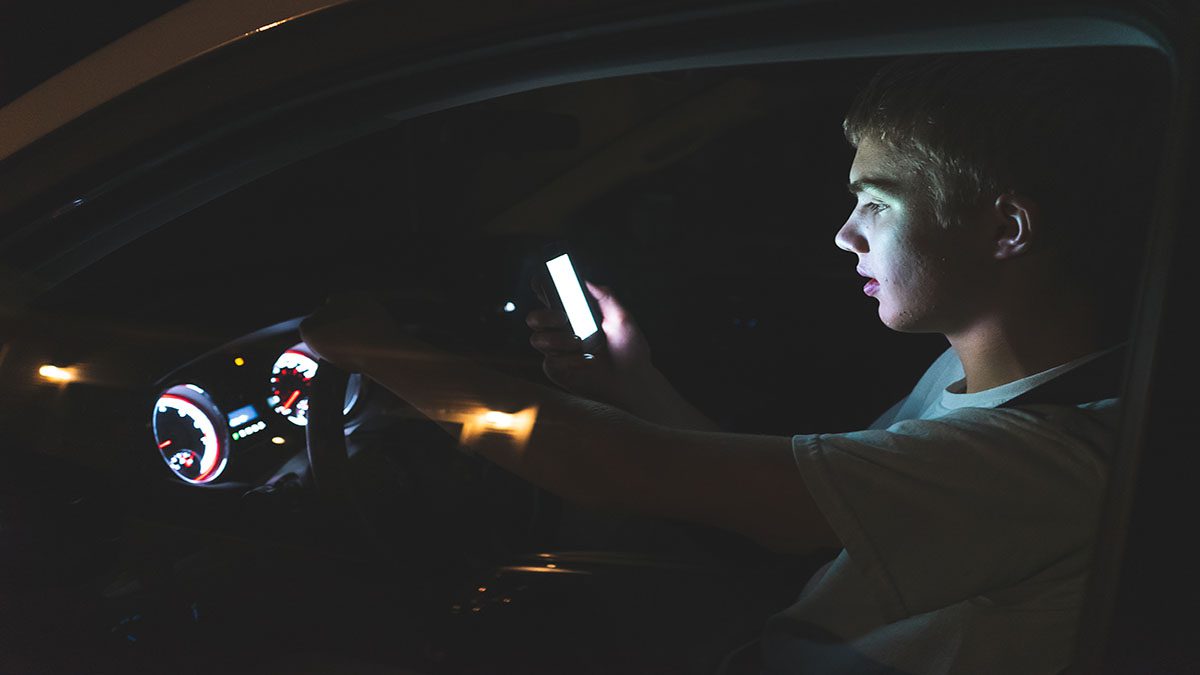What Is Distracted Driving?

In our current technological age, there are numerous different things demanding our attention at any given time. While we may think we’re good at multitasking in other areas of our lives, multitasking has no place behind the wheel. Diverting our attention away from the road can result in distracted driving. In 2020 alone, distracted driving killed 3,142 people. Learn what counts as distracted driving so you can unplug while you’re still in the driveway.
What Is Considered Distracted Driving?
Anything that takes your attention away from the road is considered a distraction, including:
Texting
Talking on the phone
Talking to passengers
Changing the radio
Using the entertainment or GPS systems
Eating
Drinking
Grooming
Reading
Texting is a common cause of distracted driving, and potentially one of the deadliest. According to the CDC, checking your phone takes your eyes off the road for an average of five seconds. While that doesn’t seem like much, if you’re going 55 miles per hour, that’s like driving the length of a football field with your eyes closed.
The Three Main Types of Distracted Driving
There are three different types of distractions to avoid:
Visual distractions: Anything that takes your eyes off the road. This may seem obvious, but you need to look at the road to know where you’re going. Driving while engaging with a visual distraction is like driving with your eyes closed. Either way, your eyes are off the road and you’re putting yourself and others in danger. Visual distractions can include eating, fiddling with technology, applying makeup or other grooming rituals, and reading.
Manual distractions: Anything that takes your hands off the wheel. There’s a lot of overlap between visual and manual distractions. For example, changing your GPS system while driving would constitute a visual and manual distraction.
Cognitive distractions: Anything that takes your mind off the road. There are multiple things competing for our attention at any time, and while multitasking is a common practice, humans aren’t designed to process that much information at once. If we can’t focus on the road because our mind is elsewhere, our performance decreases and puts us at risk for an accident.
What Are the Consequences of Distracted Driving?
Many states have passed laws against distracted driving, including laws restricting texting or talking on the phone while driving. Familiarize yourself with your state’s laws and talk with passengers or family members about the consequences of distracted driving and why distracted driving is dangerous.
How to Prevent Distracted Driving
Take these steps to prevent and raise awareness around distracted driving:
For drivers:
Never multitask while driving. If you need to adjust your mirrors, choose your music, use your phone, or have a snack, do it before you leave your driveway.
If you’re still tempted to use your phone while you’re driving, try a cell phone blocking app that prohibits texting or calling while your car is in motion.
For passengers:
Say something to the driver if you notice them engaging in distracted driving.
Reduce distractions for the driver by manning the GPS or other systems.
For parents:
Set a good example by avoiding distracted driving—teens and young adults are more likely to engage in distracted driving than their counterparts.
Talk to your teens about distracted driving and why it’s dangerous.
Now that you know the dangers of distracted driving, you can stay mindful while you’re on the road. Visit our blog for more safe-driving tips to help you maintain a clear record. In addition, if you want to be safe on the road, you need quality insurance. Forty-eight out of fifty states have made car insurance mandatory, and you don’t want to get pulled over without it. You can get a free insurance quote from The General in under two minutes and secure insurance in 12.



